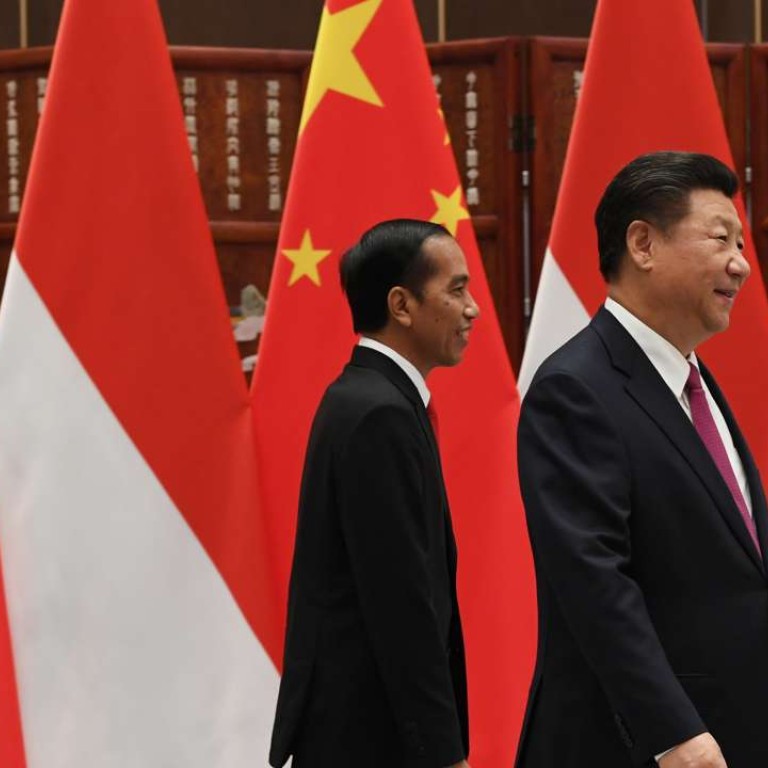
Xi urges Widodo to help keep Sino-Indonesian rail project rolling
The near-derailment of the Jakarta-Bandung joint ventures offers valuable lessons for Chinese companies heading abroad, analyst says
President Xi Jinping urged his Indonesian counterpart Joko Widodo to ensure a smooth roll-out of the US$5.1 billion joint-venture Jakarta-Bandung high-speed railway as the two leaders met in Hangzhou on Friday ahead of a Group of 20 summit.
The meeting comes two weeks after Indonesia scuttled 71 impounded foreign vessels, including three from China, a move seen as a tough response to Chinese claims that waters surrounding the Natuna Islands are part of traditional Chinese fishing grounds.
But Xi focused on positives, saying China and Indonesia shared “broad common interests” and would expand cooperation on infrastructure, productivity, trade, investment, finance and e-commerce, to establish “more flagship projects”, state-run Xinhua reported.
Xi said bilateral relations were on a good path and China would “firmly support the unity of the Association of Southeast Asian Nations”, the report said.
Xi’s call over the rail project highlights problems in economic cooperation between the two countries.
The landmark scheme was halted in January after the Chinese partner failed to submit documents for approval. It finally received all its permits late last month but questions have mounted over its 2019 completion date.
In other countries where domestic politics, power plays and environment issues are all involved
Similar Chinese rail projects – part of the country’s ambitious offshore infrastructure plans – have been suspended in Laos and Thailand, offering valuable lessons to Chinese companies.
“Unlike the domestic market where infrastructure projects face little public opposition, it’s a different picture in other countries where domestic politics, power plays and environment issues are all involved,” Jinan University Southeast Asian affairs expert Zhang Mingliang said. “This is something important for Chinese companies going abroad.”
Dai Fan, an international affairs expert also from Jinan University, said smooth implementation of the project could set an example for other Chinese projects in other countries.
China now needs a model that runs smoothly and develops well. And President Xi wants the high-speed rail project to serve as this model
“China is doing more projects overseas, some of which have encountered massive problems. China now needs a model that runs smoothly and develops well. And President Xi wants the high-speed rail project to serve as this model,” Dai said.
Richard Javad Heydarian, a political science professor at De La Salle University in Manila, said the monorail project was strategically relevant, because it could have and was yet to serve as a linchpin in Beijing-Jakarta relations.
“Its failure would be a huge blow to China’s credibility and burgeoning soft power. So no wonder Xi, who is eager on charming the near neighbourhood and having an effective peripheral diplomacy record, is on the defensive,” he said.
Additional reporting by Kristin Huang

